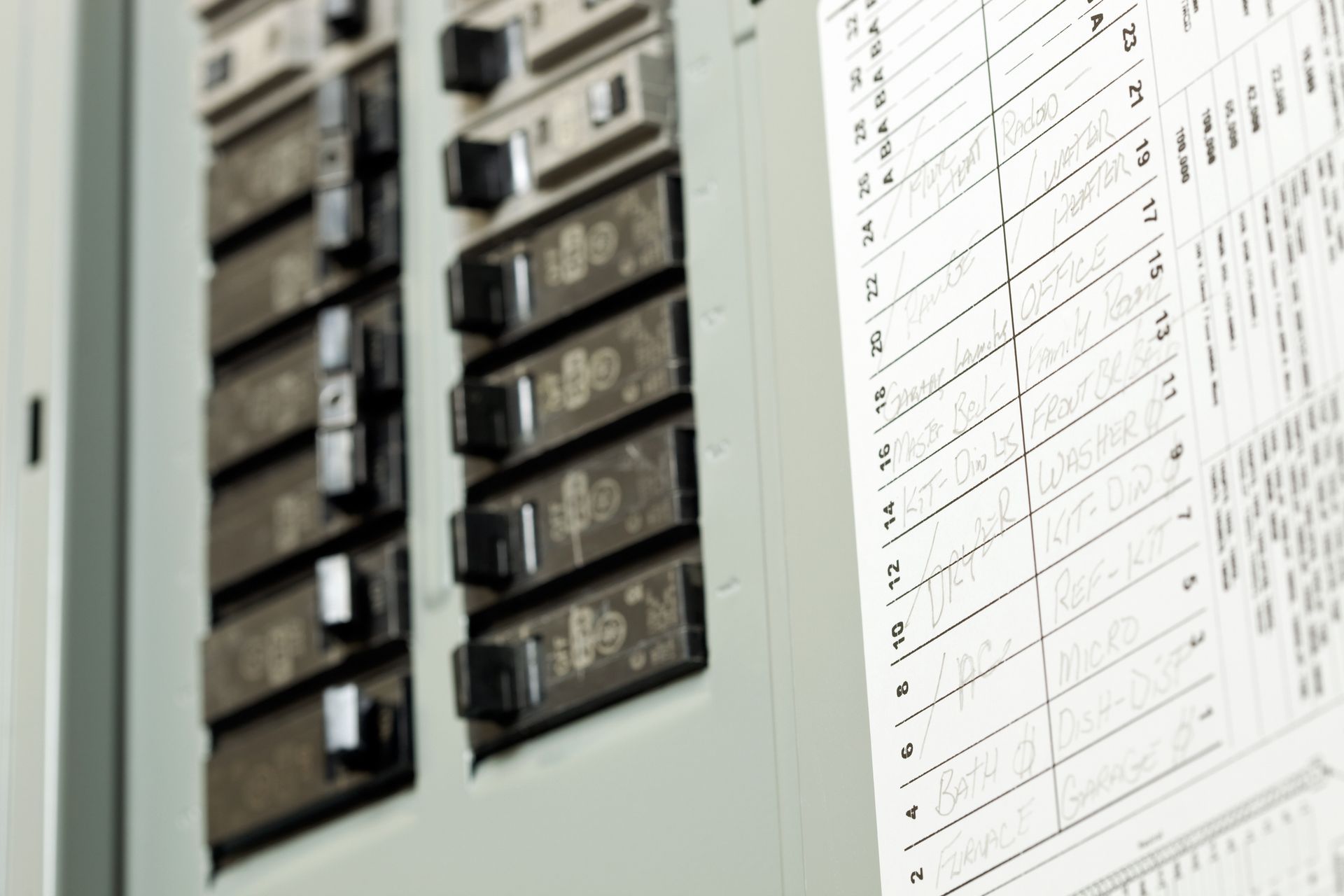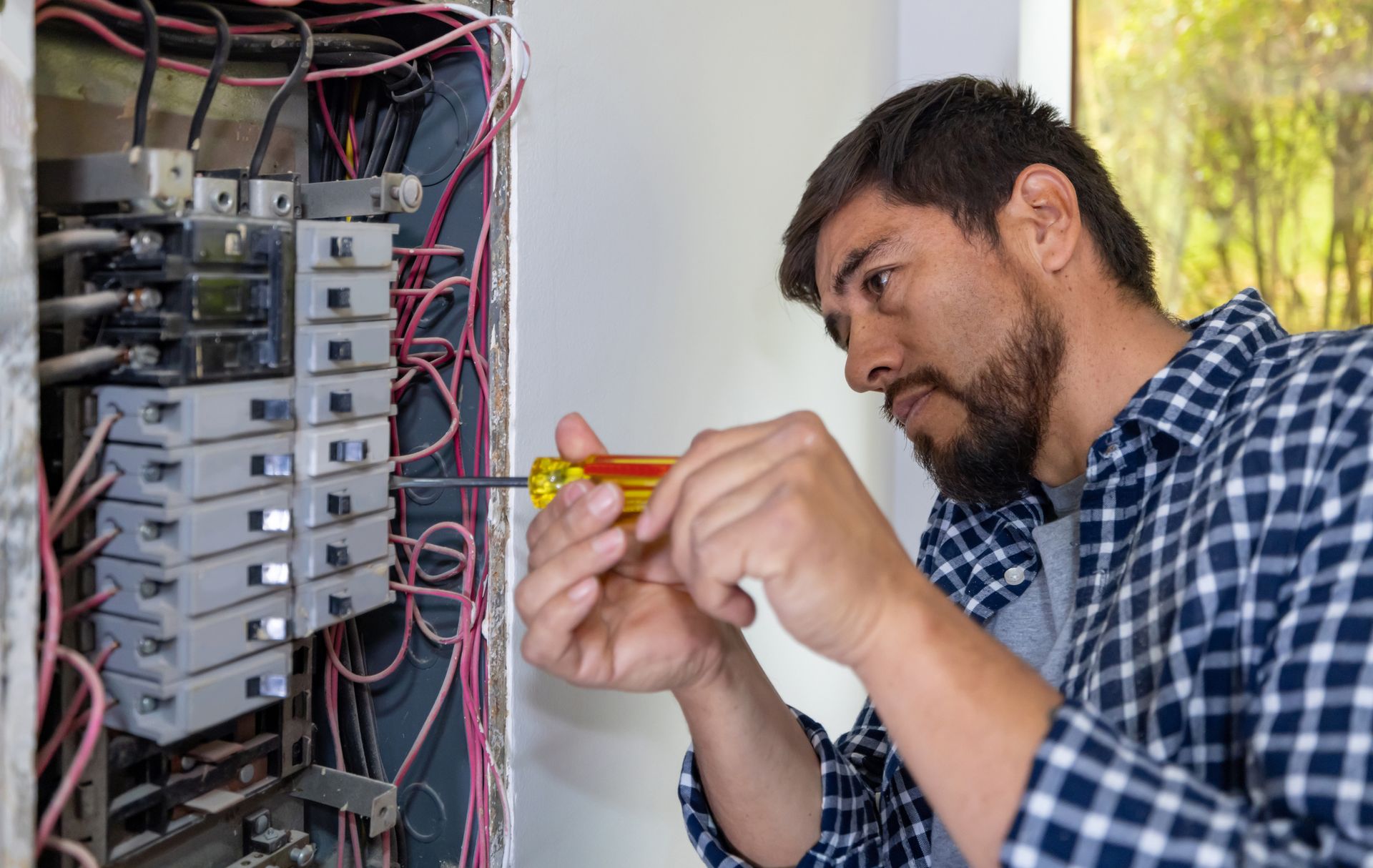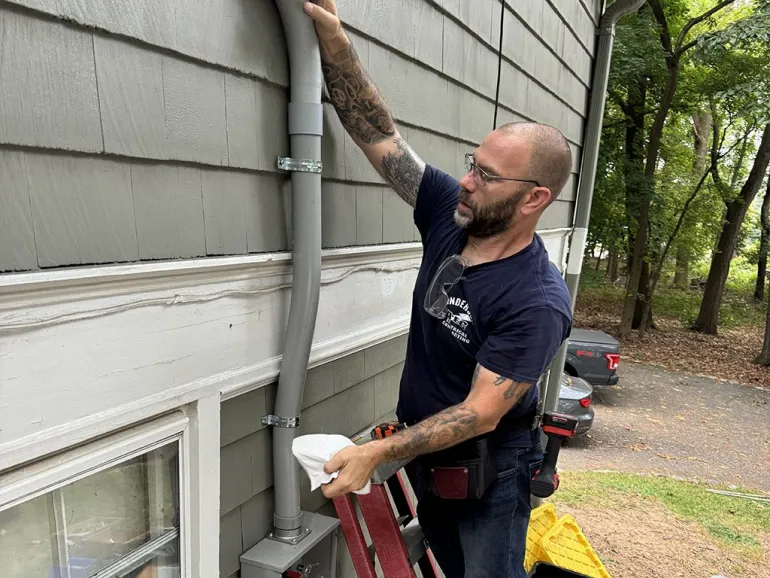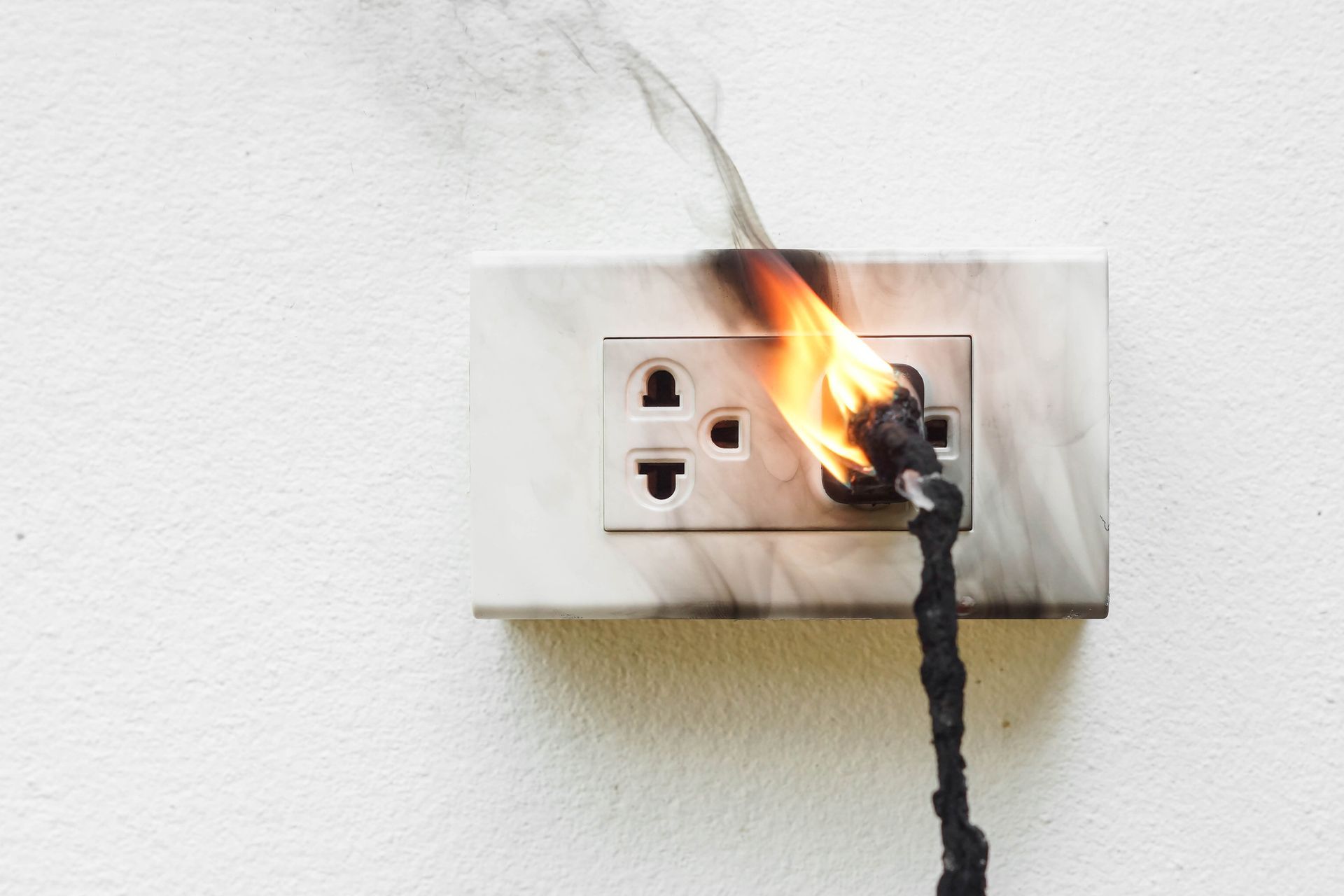Get in Touch With us Today!
CALL NOW 973-857-4333
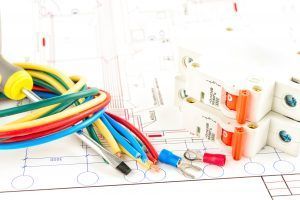
There are homes of many different ages in Northern New Jersey, ranging from the newest in residential construction to vintage homes more than a hundred years old. This means there’s also a range of residential electrical systems. One of the major jobs we handle as electricians in Nutley, NJ is helping to upgrade antiquated electrical systems like knob-and-tube wiring to modern standards, as well as putting in the newest in safe outlets (GFCI and AFCI).
This brings us to the central hub of a home’s electrical system. The fuse box. Or the breaker panel. We see both in homes and we want to go into more detail about the differences—and why we recommend upgrading to a breaker panel if you have a fuse box.
The Fuse Box
The fuse box and breaker panel do the same job: to divide the incoming electricity into the different circuits of house, and to cut off electricity in case of excess voltage.
In a fuse box, each circuit runs through a metal filament—the fuse itself. The filament melts if it overheats, which cuts off electrical flow. This is the famous “blown fuse.” To restore the circuit, a new fuse must be put in.
Although an effective way to prevent electric fires, fuse boxes have some major drawbacks that have caused them to be replaced with breaker panels. First, they aren’t convenient, since a homeowner has to put in new fuses each time one burns out. Second, they don’t work with modern outlets like GFCIs. Third, in order to handle the higher electrical demands of modern homes, larger and larger fuses are necessary—and this can lead to creating its own fire hazard.
The Breaker Panel
A breaker panel has a different way of cutting off electricity in case of overheating. It uses either a bimetal strip or solenoid to trip a switch and cut off the circuit. All it takes to restore electricity is to flip the switch back.
Breaker panels are much more convenient—no need to buy new fuses and keep replacing them. This feature is especially useful if a circuit trips at night since it means no fumbling with fuses in the dark. They allow for GFCI outlets and more electrical devices in a home than a fuse box (or at least a fuse box that isn’t overloaded with fuses that are too large). Aside from being generally safer, breaker panels allow for a home to fully upgrade to modern electrical demands.
Upgrading Your Home Electrical System
If you have a fuse box for your house, we recommend calling our electricians to have it replaced. This may also require making other changes (such as some rewiring) to the house. We advise replacing two-pronged outlets as well—we can ground your house with the new circuit breaker panel—and have GFCI and AFCI outlets installed in specific rooms where they increase safety. You can also have a whole-house surge protector installed along with the breaker panel, providing a higher level of protection to your home’s electrical system.
Anderson Electric Corp. serves Northern Jersey—your local electrician for 25 years. Call today for a free estimate.

